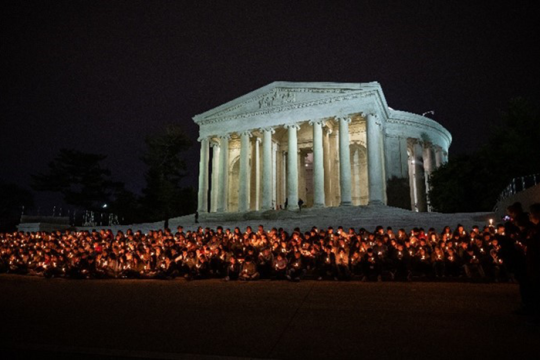
Today marks ten years since President Barack Obama signed the Patient Protection and Affordable Care Act (ACA) into law. This landmark piece of legislation has helped millions of people gain access to health insurance and guaranteed coverage for people with preexisting conditions. But we have long known that the ACA was just one step in repairing the United States’ broken health care system. Despite the law, 27.5 million people in the U.S. still live without health insurance and millions more still unable to afford quality care, even when they have coverage.
The U.S. continues to face a significant health care crisis, demonstrated most acutely by the current COVID-19 pandemic. The tenth anniversary of the ACA provides a unique opportunity to celebrate the law’s successes and explore opportunities to strengthen the health care system so all people can access quality, affordable health care.
Since the ACA was signed into law ten years ago, over 20 million Americans have gained health insurance through marketplaces and 36 states and the District of Columbia have expanded Medicaid. The ACA has also extended critical nondiscrimination protections to members of the LGBTQ community and people seeking reproductive care, ensured coverage for substance use disorder treatment and mental health services, expanded coverage to 2.3 million young adults by allowing young people to remain on their parent’s private insurance until age 26, and guaranteed insurance for people with preexisting conditions.
Despite its successes, the ACA has faced multiple legal challenges in the ten years since its passage. Most of these challenges surround the individual mandate, which stipulates that people maintain a minimum level of essential health insurance coverage or otherwise pay a financial penalty to the IRS. In 2012, the Supreme Court upheld the individual mandate as constitutional under Congress’ power to tax. In December 2017, however, Congress passed the Tax Cuts and Jobs Act, reducing the tax penalty to zero dollars and effectively eliminating the individual mandate. A few months later, several states filed a lawsuit (in a case now known as Texas v. U.S.) arguing that the entire ACA should be struck down because the individual mandate no longer generates revenue for the federal government and therefore cannot be considered a tax.
Earlier this month, the Supreme Court announced that it would consider Texas v. U.S. during its upcoming term, which begins next fall. This will be the Supreme Court’s third case challenging the ACA, and the first since Justices Gorsuch and Kavanaugh joined the bench. In this case, the Supreme Court will consider whether the Tax Cuts and Jobs Act of 2017 rendered the individual mandate unconstitutional, and if so, whether the rest of the ACA is unconstitutional as well.
Even as we celebrate that ACA’s tenth anniversary this month and urge the Supreme Court to uphold the law, we also acknowledge that many people still face barriers to care. In less than two months, federal funding for a variety of health care programs serving vulnerable populations will expire. These programs – including community health centers, Medicaid disproportionate share hospitals, Special Diabetes Program for Indians, the National Health Service Corps, and the Teaching Health Center Graduate Medical Education Program – are critical components of the United States health care system and provide health care to communities of color, people in rural areas, and individuals living in poverty. Many of these programs, particularly community health centers, are on the front lines responding to the COVID-19 pandemic in their communities. Act now to urge Congress to support long-term, stable funding for these programs before funding lapses on May 22, 2020.
Judaism is clear about our responsibility to ensure health care for all people, teaching that providing health care is not just an obligation for medical professionals, but for society as well. It is for this reason that Maimonides, a revered Jewish scholar and physician, listed health care first on his list of the ten most important communal services a city must offer its residents if the city is to be found worthy for a great scholar to live there (Mishneh Torah, Hilchot De’ot IV:23). As we mark the tenth anniversary of the ACA, let us continue to work to fulfill this sacred mandate.
Related Posts

Teens from North Carolina Speak About Environmental Justice

Why is this Right Different?: City of Grants Pass, Oregon v. Johnson and the Passover Call to Action


